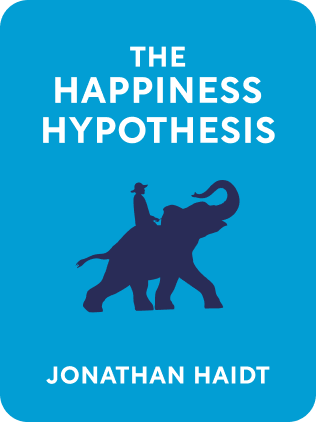

This article is an excerpt from the Shortform book guide to "The Happiness Hypothesis" by Jonathan Haidt. Shortform has the world's best summaries and analyses of books you should be reading.
Like this article? Sign up for a free trial here .
How can we find more meaning in life? Why is performing meaningful work so important to our happiness?
We all focus on finding meaning in life, but in order to do that, we need to understand human beings. Humans need to engage in pursuits and work that fill our lives with purpose and meaning. And the most satisfying and meaningful work is that which people find intrinsically rewarding.
Continue reading for more information on the pursuit of meaning.
Finding Meaning in Life
In order to find meaning in life, it is crucial to understand human beings as they actually are.
We are not hyper-rational beings. To use the metaphor from The Happiness Hypothesis, in most situations, the elephant is in charge, not the rider. Philosophers seeking to explain or understand the human condition need to incorporate this fundamental psychological truth into their work.
Knowing this is important because it determines what the most effective strategies are for living a purposeful life. We explore those strategies in this article.
Meaningful Work
One of the essential conditions for a satisfying life is meaningful work. We need to engage in pursuits that fill our lives with purpose and meaning. Work doesn’t have to be narrowly defined as a career. It can be anything that’s action-oriented and sets things in motion.
We have a need to see that our actions have an effect on the world around us. This is a psychological need known as effectancy. Anything from simple child’s play to a stable adult career can provide effectancy, satisfying our hunger to see that there are results associated with the labor we provide.
The most satisfying and meaningful work is that which people find intrinsically rewarding. Those who enjoy their jobs the most are not motivated by money and don’t treat their employment as a means to an end. Such individuals would do their jobs even if they didn’t have to because it provides purpose and fulfillment beyond extrinsic rewards.
Importantly, people desire occupational self-direction—work that is complex and challenging, engages their interests or talents, and allows for a high degree of independence and autonomy. It is what Csikszentmihalyi called “flow.” This kind of work harnesses the progress principle to maximize our happiness, rewarding us for each baby step we take toward the goal.
One need not be engaged in white-collar or highly paid work to enjoy occupational self-direction. Blue-collar and manual workers can enjoy this same feeling of self-worth if they believe what they do is critical to the achievement of a larger mission. In one NYU study, the janitors who cleaned the bed pans reported some of the highest levels of satisfaction of anyone working in the hospital surveyed by the research team. These janitors believed they were making a visible and meaningful contribution to the creation of a safe and healthy environment for patients.
The key is to find work that engages your strengths, which will initiate a cycle of more positive thinking. You’ll start to connect the dots between your work and the achievement of larger goals. Without these intrinsic rewards, you’ll just be doing a job on a purely translational basis, seeing your work only in isolation and connecting it to no larger purpose.
The Key to Happiness
We are responsible for creating the conditions for our own happiness. This comes from having the right relationships to other people, to your work, and to some sort of higher purpose that is greater than yourself.
It is about finding the right balance between connecting to your community and connecting to yourself. Happiness comes from your attachments to the world around you, but it also comes from the cultivation of inner virtues—training the elephant to explore its full potential, while respecting its power over the rider.
But by aligning the rider with the elephant, you will discover your own path to purpose, meaning, and, ultimately, happiness.

———End of Preview———
Like what you just read? Read the rest of the world's best book summary and analysis of Jonathan Haidt's "The Happiness Hypothesis" at Shortform .
Here's what you'll find in our full The Happiness Hypothesis summary :
- How your emotions determine how satisfied you are in life
- Why you need to struggle in order to succeed
- How to create your own happiness






